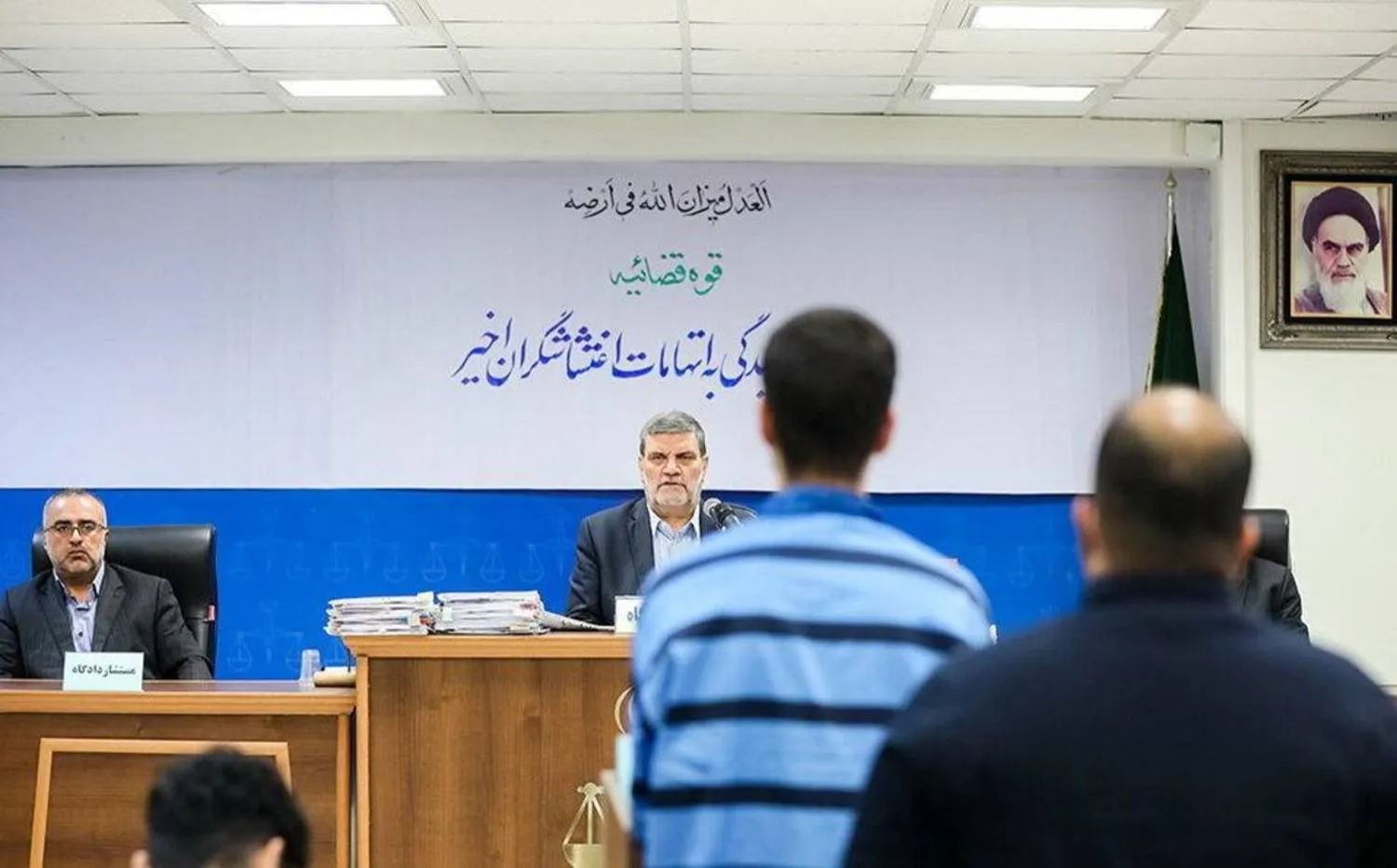The Iranian judiciary overturned death sentences against two people who were arrested in connection with the protests last year after the death of the young woman, Mahsa Amini.
The court sentenced Mohammad Ghobadlou to death for "corruption on Earth" after a court found him guilty of "attacking police officers, one of them fatally," in a car-ramming incident during a demonstration.
Ghobadlou, 23, was sentenced in October, and his family appealed for clemency from the court because he has bipolar disorder.
The French Press Agency reported that the Supreme Court quashed the death sentence against Ghobadlou and referred his case to a new jurisdiction to deal with issues relating to his mental health.
The defense lawyer, Amir Raisian, said on Twitter that the verdict issued had been overturned, and the case will now be referred to the same branch to address matters related to his client's mental health and to give a new verdict.
In early February, Mezan Agency, affiliated with the Iranian judiciary, suspended the execution of Ghobadlou's death sentence pending an investigation into the case of the premeditated killing of a policeman.
Since late last year, the Iranian authorities have executed seven people for assaulting members of the security forces on the sidelines of the protests.
Human rights organizations confirm that seven people face a similar fate.
Another death sentence was overturned after the Court of Appeal registered a retrial for Abbas Deris, an Arab political prisoner arrested during the November 2019 protests in Mahshahr, southwestern Iran.
The government's sharp increase in fuel prices led to one of the biggest protests in the country.
Fereshteh Tabanian, Deris' lawyer, said that the Court of Appeal overturned the execution and ordered a retrial.
When the Iranian Revolutionary Court issued the death sentence against Deris and his brother, it accused them of "moharaba" and murdering a special unit officer.
The Oslo-based Human Rights Organization in Iran said that Deris' wife suffered a stroke and tragically passed away.
His mother and three children recently shared public pleas to help save his life.
According to human rights organizations, the death toll in Jarahi, northern Mahshahr, ranged from 40 to 100.
Mahmoud Vaezi, chief of staff of the Iranian president, confirmed that there had been many deaths in the town but accused protesters of shooting.
- Pressuring celebrities and women
Recently, the authorities announced several security and judicial measures in anticipation of renewed protests, with the approaching first anniversary of Amini's death and the outbreak of demonstrations posing the biggest challenge to the authorities in 43 years.
The Iran Organization for Human Rights, based in Washington, said that the authorities referred the case of rapper Saman Yasin to a mental hospital.
Meanwhile, Amnesty International reported Wednesday that Iranian authorities are doubling down on their oppressive methods of policing and severely oppressing Iranian women and girls for defying degrading compulsory veiling laws.
The protests opened a discussion about dress codes, especially the compulsory veil laws, with some political and social groups calling for easing restrictions.
Officials alluded to withdrawing morality police patrols from the streets amid an increase in unveiled women.
Amnesty International reported that since April, the authorities have waged an intensified nationwide crackdown on women and girls who choose not to wear headscarves publicly.
"The authorities are doubling down their oppressive methods of policing and punishing women and girls to quell widespread defiance of degrading and discriminatory compulsory veiling laws," said the organization.
During the protests, many women took off their headscarves in the street and burned them or threw them on the ground.
After the outbreak of protests, women were seen in the streets of Tehran and other cities without a scarf.
However, the police car and foot patrols enforcing compulsory veiling returned across the country, and reports claimed that legal action would be taken against women and girls "who insist on breaking the norms" and threatening that they would be "referred to the judiciary.”
Amnesty warned of an increasingly severe crackdown on a national scale, noting that more than a million women have received SMS warnings that their vehicles will be confiscated if they are found traveling in a car while unveiled.
Amnesty's Sec-Gen Agnes Callamard asserted that the international community must not stand idly by as the Iranian authorities intensify their oppression of women and girls.









